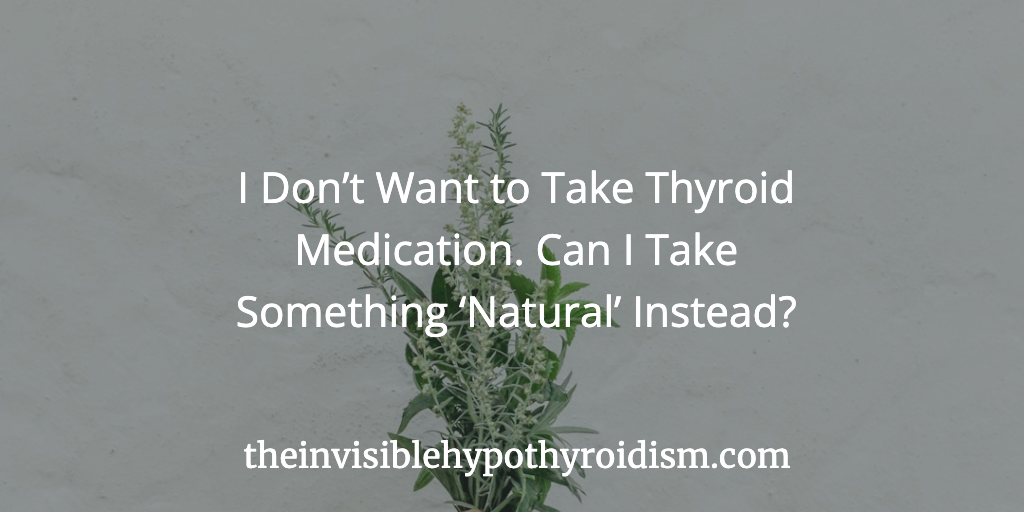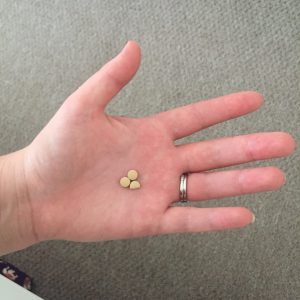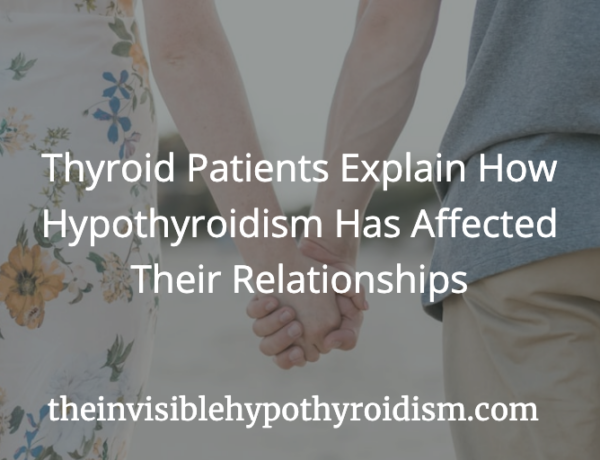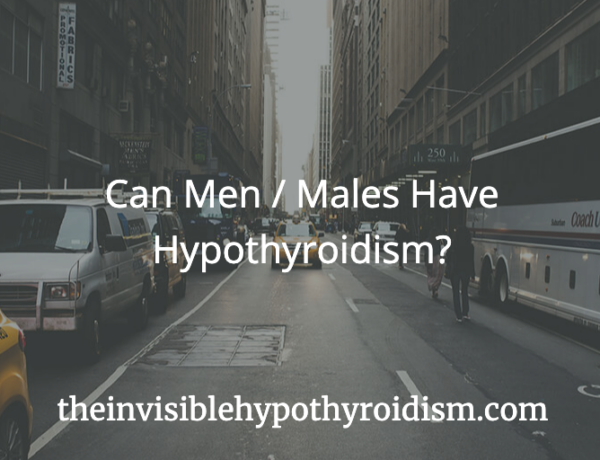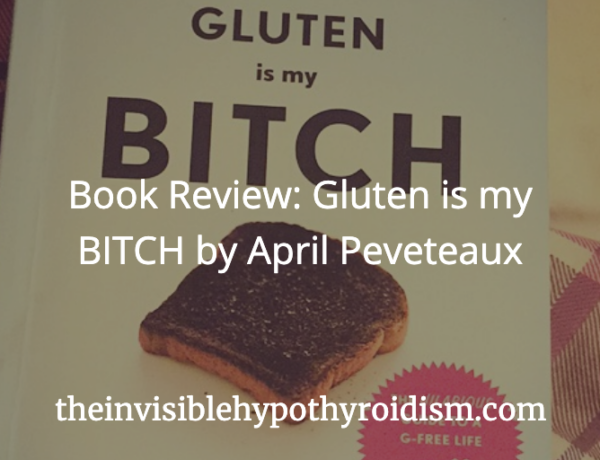Originally published on 20th April 2020 Last updated on 29th July 2024
I hear the same question everyday in my online thyroid spaces. It can vary, but often sounds something like this:
“I don’t want to take thyroid medication. Can I just take something natural instead?”
“What natural alternative is there to thyroid meds?”
“How are people managing their hypothyroidism naturally instead of taking their meds?”
A question like this concerns me. I have a couple of questions.
1. How Are You Looking at Your Thyroid Medication?
Do you see your thyroid medication as yet another pill you have to take and hate the thought of putting it in to your body?
In a world that glamourises being ‘as natural as possible’, being surrounded by thyroid books and websites that support finding your ‘root cause’ so you can ‘reverse‘ your thyroid condition and possibly not require medication anymore, it can be difficult to accept that your thyroid medication is nothing to feel bad about.
For example, do you see your thyroid medication in the same way as food and water?
Do you see it as essential for you to live and for your body to actually function? Because adequate thyroid hormone is required by every cell and every function in the body and without it, a lot can go wrong (which creates the long list of symptoms we all recognise so well).
Not having the correct amount of thyroid hormone in your body can actually kill you. Just as diabetics need insulin, we need our thyroid hormone replacement and there is no need to feel ashamed about that.
It doesn’t make you weak to need thyroid medication.
2. Do You Understand What Your Thyroid Medication Is For?
Thyroid medication – such as Levothyroxine, Synthroid, Armour Thyroid, Liothyronine and more – is a hormone replacement. It’s not an optional supplement. It’s replacing a crucial hormone your body needs in order to function.
Vitamin and herbal supplements do not and cannot replace thyroid hormone – unfortunately, only hormone replacement medication replaces a lack of hormone.
Not replacing thyroid hormone that you’re lacking in can result in all sorts of issues and possible risks, including:
- Abnormal blood pressure
- An increased risk of heart disease
- An increased risk of infection
- Weight gain
- Depression and anxiety
- Hair loss
- Infertility, miscarriage, stillbirth
- Periods issues
- Extreme fatigue
- Inability to handle exercise
- Muscle weakness
- Joint and muscle aches and pains throughout the body, though most commonly in the legs
- Numbness in limbs
- Cold Sensitivity
- Brain function issues such as brain fog, memory issues, degeneration and confusion
- High cholesterol
And the most serious of all, myxoedema coma, which, although uncommon, can be fatal. This is a loss of brain function as a result of longstanding, severely low level of thyroid hormones. It is considered a life-threatening complication of hypothyroidism that develops over quite a large amount of time.
3. What Do You Mean by ‘Natural’?
‘Natural’ doesn’t always mean ‘safe’ or ‘better for you’.
Herbal supplements and treatments that may support the treatment of thyroid conditions (often administered by naturopathic doctors for example), may help support treatment, but do not replace or create thyroid hormone. Herbs are also not naturally occurring in the body.
Thyroid hormone is literally what your own body makes and replacing low levels of this with thyroid hormone replacement could surely be considered ‘natural’ in itself. However, if you’re referring to the difference between synthetic thyroid medications and those derived from animals (such as porcine thyroid gland), then the most ‘natural’ thyroid medication you’re asking about may be NDT, also known as Natural Desiccated Thyroid Medication. This medication may be considered more natural than the synthetic ones, but is still hormonal replacement.
If you’re wanting to explore supporting your thyroid health with complimentary and perhaps ‘natural’ treatments, then some books looking at this can be found here. Some claims have been made that taking ‘natural treatments’ can help to stimulate thyroid hormone production, but how true this is and how well it works for each person (if at all) is highly disputed.
4. Are You Checking Claims?
Be wary of promises made by those claiming to have cures or ‘natural’ ways to treat thyroid conditions. Hypothyroidism in most cases cannot be cured and Hashimoto’s is not curable. Read why here.
Both are classed as chronic illnesses (meaning they are lifelong), but a good quality of life with these thyroid conditions can be achieved. Alternative medicine can be of great help and support to many of us living with hypothyroidism, but usually in conjunction with thyroid hormone replacement, or another plan to replace those thyroid hormones. Read more here.
I had to take a holistic approach to treating and managing my hypothyroidism and Hashimoto’s by combining a GP with a functional medicine practitioner. I now live in good health every day, but I still require my thyroid hormone replacement medication and that is OK.
For most of us, it’s much more beneficial to look at managing our hypothyroidism as best we can, without focusing too much on ‘getting off of medication’ or ‘finding a cure’. Thyroid hormone replacement medication is as important as food and water. We need it to stay alive.
Some people may find that their body naturally does not ned thyroid medication as time goes on and it corrects, but this isn’t what happens for most of us.
Takeaways
Talk to your doctor about trying another type of thyroid medication if you feel no better on your current one, have side effects, or take a look at my list of ideas for other reasons you might still be feeling unwell even when on thyroid medication. You may also wish to explore other types of medical professionals which can help.
Talk to your doctor or insurance provider if applicable, about payment plans or arranging something more affordable, if affordability is the issue when it comes to your thyroid medication.
If you’re honestly still wanting to explore being able to live without taking thyroid medication and instead stabilising your condition with ‘natural treatments’, you may wish to consult someone like a functional medicine doctor for example, but be extremely cautious about promises to reverse your thyroid condition or ‘get you off of meds’ without any other plan to replace missing thyroid hormone. Most of us end up needing thyroid hormone replacement for life, even after putting Hashimoto’s into remission.
Related Article: Why Do I Feel Worse on Thyroid Medication?
How is your relationship with your thyroid medication?

The book Be Your Own Thyroid Advocate: When You’re Sick and Tired of Being Sick and Tired, which builds on this article in detail, as Rachel discusses all the steps she took to get her Hashimoto’s and hypothyroidism under control so she could enjoy life again.

